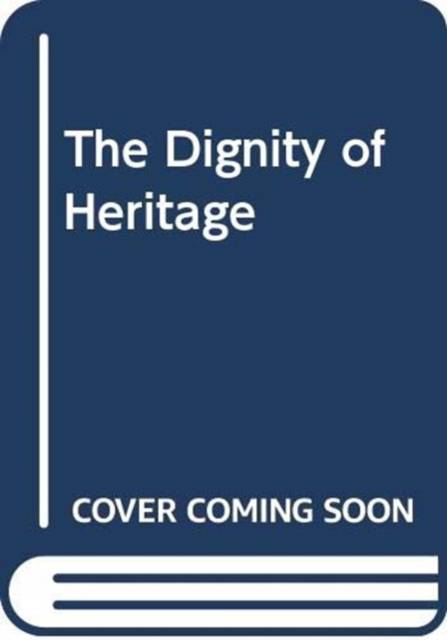
- Retrait gratuit dans votre magasin Club
- 7.000.000 titres dans notre catalogue
- Payer en toute sécurité
- Toujours un magasin près de chez vous
- Retrait gratuit dans votre magasin Club
- 7.000.0000 titres dans notre catalogue
- Payer en toute sécurité
- Toujours un magasin près de chez vous
Description
The Dignity of Heritage makes a radical break with routinised accounts and definitions of cultural heritage and with the existing or 'established' canon of cultural heritage texts. Jacques Derrida's rallying call to 'restore heritage to dignity' is taken as an alternative guiding metaphor by which this book critically re-visits the core question - what constitutes cultural heritage? Engaging with concerns (notably the moral-ethical issues) that shape and define the possible futures of cultural heritage studies, the book aligns with a wider 'anthropological perspective' on cultural heritage studies. It chimes with scholarship committed to disrupting the 'Eurocentrism' which continues to underpin cultural heritage theory/ practice and also with a contemporary 'politics of recognition' which is bound up in articulating new, alternative or 'parallel' characterisations of heritage value.
The Dignity of Heritage provides the intellectual impetus and critical frame-work by which cultural heritage discourse can undergo a process of radical reflection, fundamental re-conceptualisation and engage in a subsequent reconstruction of its core heritage values, practices and ethics. The Dignity of Heritage is of transformative value in outlining and creating new and future agendas within cultural heritage discourse
Spécifications
Parties prenantes
- Auteur(s) :
- Editeur:
Contenu
- Nombre de pages :
- 224
- Langue:
- Anglais
Caractéristiques
- EAN:
- 9780415517591
- Date de parution :
- 01-01-21
- Format:
- Livre relié
- Format numérique:
- Genaaid
- Dimensions :
- 156 mm x 233 mm

Les avis
Nous publions uniquement les avis qui respectent les conditions requises. Consultez nos conditions pour les avis.






